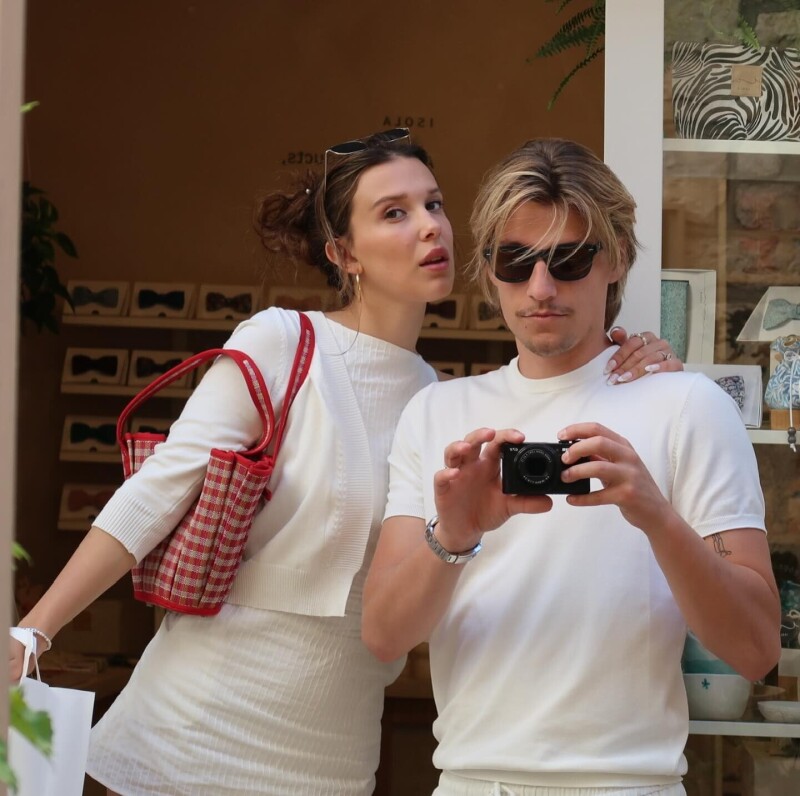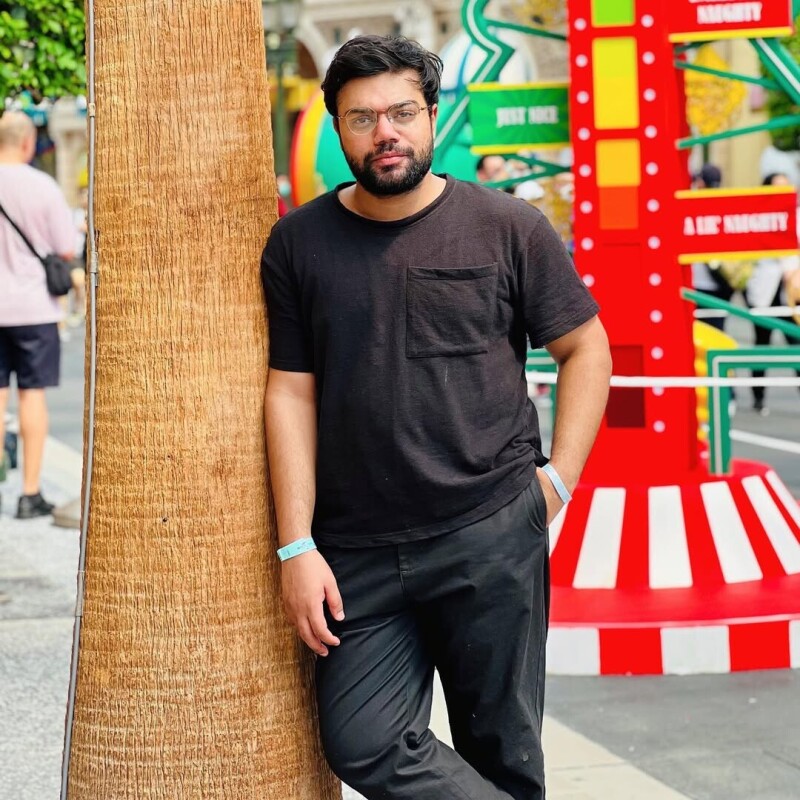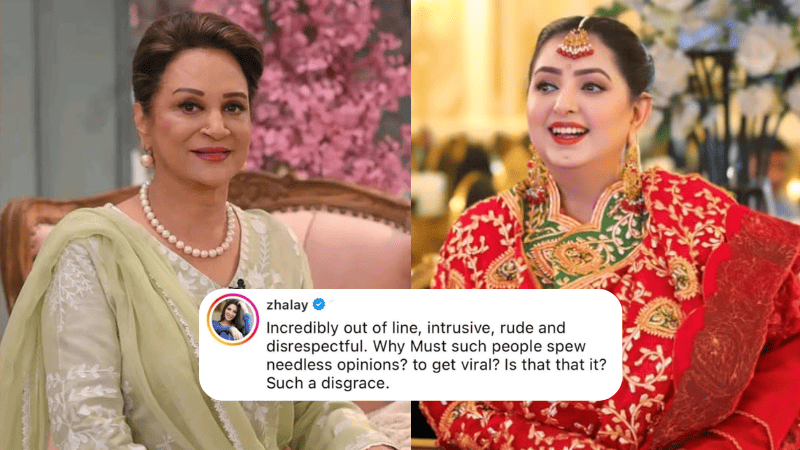Herstories: The untold narratives of Pakistani women through theatre
A few days ago, I came across a poster boldly displaying Herstories in uppercase letters. It showcased several black and white photographs of women from the past, some clad in shalwar kameez, others in elegant shararas.
The title, Herstories by Tehrik-e-Niswan, immediately caught my eye because it’s uncommon to find media that authentically portrays women as individuals, free from the confines of being labelled as heroines or villains. However, since the director was veteran dancer Sheema Kermani, my heart was bubbling with expectations. I immediately decided to watch the show on April 25, putting aside everything else I had to do.

The National Academy of Performing Art (Napa) was illuminated with bistro lights on the day of the performance — women sat at stalls selling food, handicrafts, and other goods. A large poster adorned the upper part of the Zia Mohiuddin Theatre, proudly announcing the Women’s Performing Arts Festival. I felt immensely welcomed and in sync with the atmosphere of the place.
As soon as the curtain fell, we heard Kermani sharing the purpose of the play and why it was so important for us as an audience to watch these untold stories.
“All the five female characters whose stories are told in the production are amazingly brilliant and exceptional women. They were artists of the highest calibre, creative, talented, hardworking and intelligent. They dared to raise their voice against the oppression of women, they danced, they sang, they wrote poetry, and they talked about women’s sexuality — they were all liberated women. They were women whose lives and works need to be documented, but who passed away without being acknowledged, appreciated or even remembered,” Kermani declared passionately.
Amidst a vibrant tapestry of sound by Azhar Shan and Yasir, we were soon transported into the lives of these historical women.
Atiya Fyzee
First, we met Atiya Fyzee-Rahamin (played by Kulsoom Aftab), who made history as the first South Asian woman to attend the University of Cambridge. The portrayal of her journey depicted her personal struggles, her letters with influential figures like Allama Iqbal (brilliantly played by Mujtuba Zaidi) and Shibli Naumani (Vajdan Shah), and her marriage to Samuel Fyzee-Rahamin, an artist who embraced Islam.
Fyzee-Rahamin’s adventures took her to art galleries across Europe and the United States, where she challenged traditional norms by speaking publicly without wearing a hijab and advocating for women’s rights. Eventually, she moved to Pakistan at the invitation of Jinnah, who provided her family with a grand home in Karachi. There, she opened an art gallery named after her residence in Mumbai.

When I talked to Kermani about Fyzee-Rahamin, she said: “I believe it is important to record that Atiya Fyzee was an author, traveller, educationist, singer, musician and a patron of the arts. She had been invited by Mohammad Ali Jinnah to come and settle in Pakistan and set up a cultural centre, but soon after Jinnah’s death she became homeless and died in poverty.”
Madame Azurie
Next was Madame Azurie, portrayed by Anjaleen Agrawala through a beautiful dance performance. She was a renowned dancer and actor in British India and later Pakistan. Azurie graced the screens of Indian, Pakistani, and Bengali cinema, earning herself the title of the first item dancer in Indian films.
With the support of Fyzee-Rahamin, Azurie honed her skills in dance and the arts. After her father’s passing, she moved with Fyzee-Rahamin and eventually settled in Rawalpindi, Pakistan. She helped establish the Pak-American Cultural Centre in Karachi, teaching classical dance there for many years.
Parween Qasim
Through the captivating dance performances of Tabita Simrin and Mohammed Asif, we were transported into the world of Parveen Qasim — a talented dancer who received Kathak training from her father, Muhammad Qasim.
We gained insight into her struggles and challenges, and how the draconian restrictions of the Ziaul Haq regime shattered her dreams of pursuing dance.
The prohibition on dance deprived Parveen of her passion and livelihood and subjected her to societal scorn and discrimination. Despite the adversity, Parveen’s determination and resilience shone through as she navigated the oppressive landscape, refusing to let her spirit be crushed.
Nilima Ghanshyam
During the play, we watched rare black-and-white footage showcasing Nilima Ghanshyam performing in a traditional Manipuri dance costume.
In 1954, Ghanshyam and her journeyed to Pakistan on invitation from former prime minister Huseyn Shaheed Suhrawardy, who recognized the couple’s talents and the need for artistic institutions in Pakistan. Together, they established the Rhythmic Art Centre in Bahadurabad, Karachi.
Under the Ghanshyams’ guidance, Kermani, as a child, flourished in a nurturing environment and received training in various classical dance styles like Kathakali, Manipuri, and Bharatnatyam. However, in 1983, the tranquillity was shattered when Zia implemented strict laws targeting women and minorities. Threatening letters and attacks on their home forced the Ghanshyams to move to the US.
Sara Shagufta
Last up was Naina Black, portraying the first ‘angry young Urdu poet’, Sara Shagufta, whose life was marked by disappointment and despair. She grew up in a poor family in Gujranwala, Pakistan. Her father remarried, so her mother had to raise her and her siblings alone.
She couldn’t finish school because of her family’s financial situation and was married off at the mere age of 17. Sadly, after her marriage, her infant passed away, leading to her divorce as people blamed her for the death.
Shagufta remarried thrice after that, but none of the marriages were successful. The poet committed suicide in 1984 when she was only 29 years old.
Actors Anwaruddin and Emran Khan, who played her second and third husbands, did a great job portraying the complexity of their turbulent relationships.
“I had the honour to have met and known Madam Azurie, Mrs Nilima Ghanysham and Sara Shagufta. The first two were my teachers while Sara was a very dear and close friend. She became a controversial character due to her boldness and outspoken words. It was society that pushed her to the edge where she was forced to commit suicide at a young age”, Kermani said.

As the play came to an end, a quiet yet strong feeling filled the theatre. The stories we heard and watched left a deep impression on us.
Look at any woman from history, and you will see their determination, resilience, and drive to make an impact. The issue lies in the fact that these stories don’t receive the attention they deserve, while dramas depicting crying, downtrodden, poverty-stricken women attract high target rating points.
The performances showed us the strength and courage of Pakistani women. As I left the theatre, I carried these stories with me, inspired to continue their fight for equality and justice.















Comments